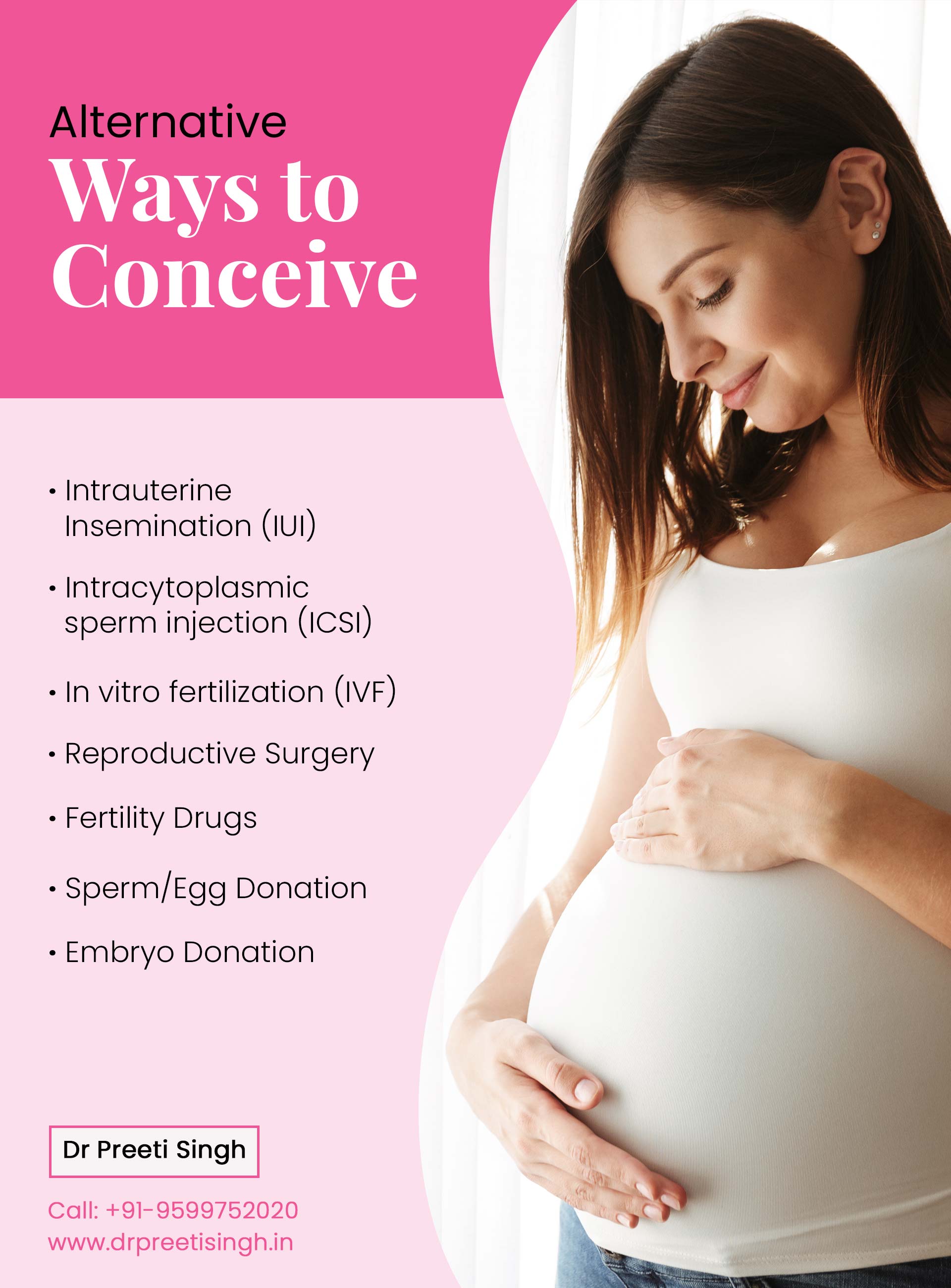Infertility: Male Causes, Female Causes, Diagnosis, Treatments & More

"We turn your dream of starting a family into reality." Dr Preeti
For a couple, parenthood and starting a family is a wonderful experience. But some face major issues with pregnancy. When a couple cannot conceive a child naturally, they are called infertile.
So, what exactly is infertility?
Infertility is a condition where a couple fails to conceive a child and achieve pregnancy after a year of unprotected sexual intercourse. According to WHO statistics, infertility affects over 48 million couples worldwide.
Infertility can have a severe impact on a couple’s mental and emotional health. But with the correct diagnosis and assistance, infertility can be treated.
Table of Contents
Feel free to skip ahead if one topic catches your eye:
- How do I know if I am infertile?
- What are the Main Causes of Infertility?
- Does masturbation cause infertility?
- How to check for infertility?
- Infertility treatment in Noida
1. How Do I Know If I Am Infertile?
Infertility is classified into two major categories:
- When a couple has never had a natural pregnancy before, they have primary infertility. Couples in this category have had regular unprotected intercourse for more than a year and cannot conceive even once.
- Secondary infertility happens when a couple could conceive for the first time but they have problems with the second pregnancy.
The most frequent indications and symptoms of female infertility are:
- An irregular menstrual cycle.
- Amenorrhoea, or the lack of menstruation
- Hormonal imbalances
- Excessive and severe menstrual bleeding
- Painful sexual intercourse
In men, the common issues and symptoms are:
- ED (erectile dysfunction)
- Hormonal imbalances
- Ejaculatory issues
- Persistent infections
- Varicocele is a condition that causes the prominent veins of the male testicles to expand. It is one of the reasons for male infertility.
These are some of the indicators that may suggest infertility in a couple. In such cases, it is critical to seek the advice of a fertility expert and seek treatment.
Also read [infertility-causes-diagnosis-risks-treatment]
2. What Are The Main Causes of Infertility?
There are a lot of factors that can contribute to infertility in a couple. Certain common factors affect both males and females equally:
- Certain lifestyle factors, including poor diet, pollution exposure, and stress, have a major influence on infertility.
- Age: Age is a key factor that influences the ability to conceive.
- After a certain age, women become infertile due to their ovaries' inability to produce viable eggs. Most females' reproductive rates begin to decline beyond the age of 35.
- Testosterone (the primary male hormone) decreases with age in males as well.
In females, the most common female infertility causes are :
- Polycystic ovarian syndrome: This condition can result in delayed ovulation and hormonal imbalances.
- Ovarian failure: Premature ovarian failure is a condition in which the ovary malfunctions and no female egg is produced.
- Problems with the fallopian tubes, including obstruction. The Fallopian tube is the location where the egg and sperm meet, and a blockage in the tube can result in infertility.
- Anovulation: it occurs when the female body fails to produce eggs.
- Endometriosis, uterine polyps, and fibroids can all cause infertility.
Do Birth Control Pills Cause Female Infertility?
A frequent misconception about female infertility is that birth control pills can cause infertility. But this is not true. Birth control pills have been shown to regulate the menstrual cycle as well as treat endometriosis. According to studies, there is no correlation between taking birth control pills and female infertility.
The leading male infertility causes are:
- Hormonal imbalances have a major impact on sperm count and sperm function.
- Oligospermia (low sperm count)
- Azoospermia (no sperm production)
- Erectile dysfunction
- Any obstructions in the testes or other sections of the reproductive system that are responsible for releasing sperm and transporting sperm.
- Infections of the reproductive tract.
- Ejaculatory disorders
3. Does masturbation cause infertility?
The social stigma surrounding masturbation has given rise to several misconceptions related to masturbation and infertility.
- Masturbation does not cause infertility in males. Although some studies have indicated that when men do not ejaculate for a few days, their sperm quality improves.
So, if you and your partner are attempting to conceive naturally, you should refrain from masturbating for a few days before engaging in sexual intercourse to enhance your chances of conception.
Masturbation, on the other hand, does not influence sperm quality or the count.
- There is no relationship between female masturbation and female infertility. Infertility is caused by the factors mentioned above.

4. How to Check For Infertility?
Infertility is a very stressful condition and it is important to correctly diagnose the causes behind it to seek the best treatment available.
Some diagnostic tests that are available for males are as follow:
- Semen analysis: It is performed to assess sperm count, motility, and morphology.
- Ultrasound: It is done to find any obstructions in the reproductive tract.
- Blood tests: These are done to check for any hormonal imbalances.
- Biopsy: A testicular biopsy is done to check for the presence of any cysts or tumours in the testicles.
- Urine analysis: to check for any underlying infections
Some Of The Female Infertility Tests Are:-
- Hormone analysis: Hormonal imbalances are identified by a thorough analysis of hormones such as LH, FSH, oestrogen, and progesterone.
- Sonography: It is performed to obtain a clear image of the ovaries, the fallopian tubes, uterus, and cervix.
- Hysteroscopy: it involves inserting a long, thin tube known as a hysteroscope into the uterus to examine its health and discover problems such as endometriosis, polyps, and cysts.
- A particular type of x-ray is used to look for the presence of any blockages in the fallopian tubes or any abnormalities. It's called a hysterosalpingogram.
- Urinalysis and blood tests are also done to check for other abnormalities.
5. Infertility Treatment in Noida :-
When a couple is diagnosed with infertility, seeking infertility treatment becomes essential. You may be confused by the abundance of clinics, but it is important to seek the best infertility treatment in Noida to get the best assistance and treatment.
Dr Preeti Singh is a highly skilled gynaecologist and treats both male and female infertility.
[choosing-a-gynecologist-things-to-look-for]
The Common Treatments For Male Infertility Are:-
- Surgery: it is done to eliminate any obstructions in the reproductive system. Surgery can be used to address conditions such as varicocele.
- In cases of low sperm count, ejaculatory problems, or erectile dysfunction, assisted reproductive methods (ART) are useful.
- Sperm extraction is done in males who have low sperm counts or obstructions that can not be addressed by surgery.
- Persistent infection in the male reproductive tract can be treated with the help of antibiotics.
- Hormonal therapy is used to treat testosterone imbalance.
The Following Are The Available Treatments For Female Infertility :-
- Female infertility can be treated with hormone therapy, which regulates the menstrual cycle and results in regular ovulation.
- Endometriosis, uterine polyps, and fibroids can all be treated with medications or surgical intervention. Blockages in the fallopian tube can be addressed as well with surgery.
- PCOD is managed by prescribing birth control tablets and following healthy lifestyle choices such as avoiding alcohol and cigarettes, exercising frequently, avoiding medicines that interfere with fertility, and eating healthy.
- Problems with ovulation are treated with the help of medications like clomiphene, clomiphene citrate, Letrozole, and HCG. These help with the ovulation and release of eggs.
Specialised procedures known as Assisted Reproductive Techniques (ART) are also used to increase the chances of conceptions.
- In vitro fertilisation (IVF) is a procedure in which sperm and eggs are artificially fertilised outside the body in a test tube and then transferred into the uterus.
- Another type of treatment is intrauterine insemination, in which millions of sperm are inserted into the uterus just before ovulation to increase the chances of conception.
- Surrogacy: This is done when the female is unable to carry the pregnancy in her uterus due to underlying conditions. Here, the embryo from IVF is implanted into another woman known as a surrogate mother.
Takeaway
Dr Preeti Singh is a well-known Obstetrician and the best Gynecologist in Noida. The clinic offers cutting-edge facilities and a staff of highly experienced professionals. She has years of expertise in treating infertility and you will get the best treatment for your particular concerns here.
Consult our specialists now!